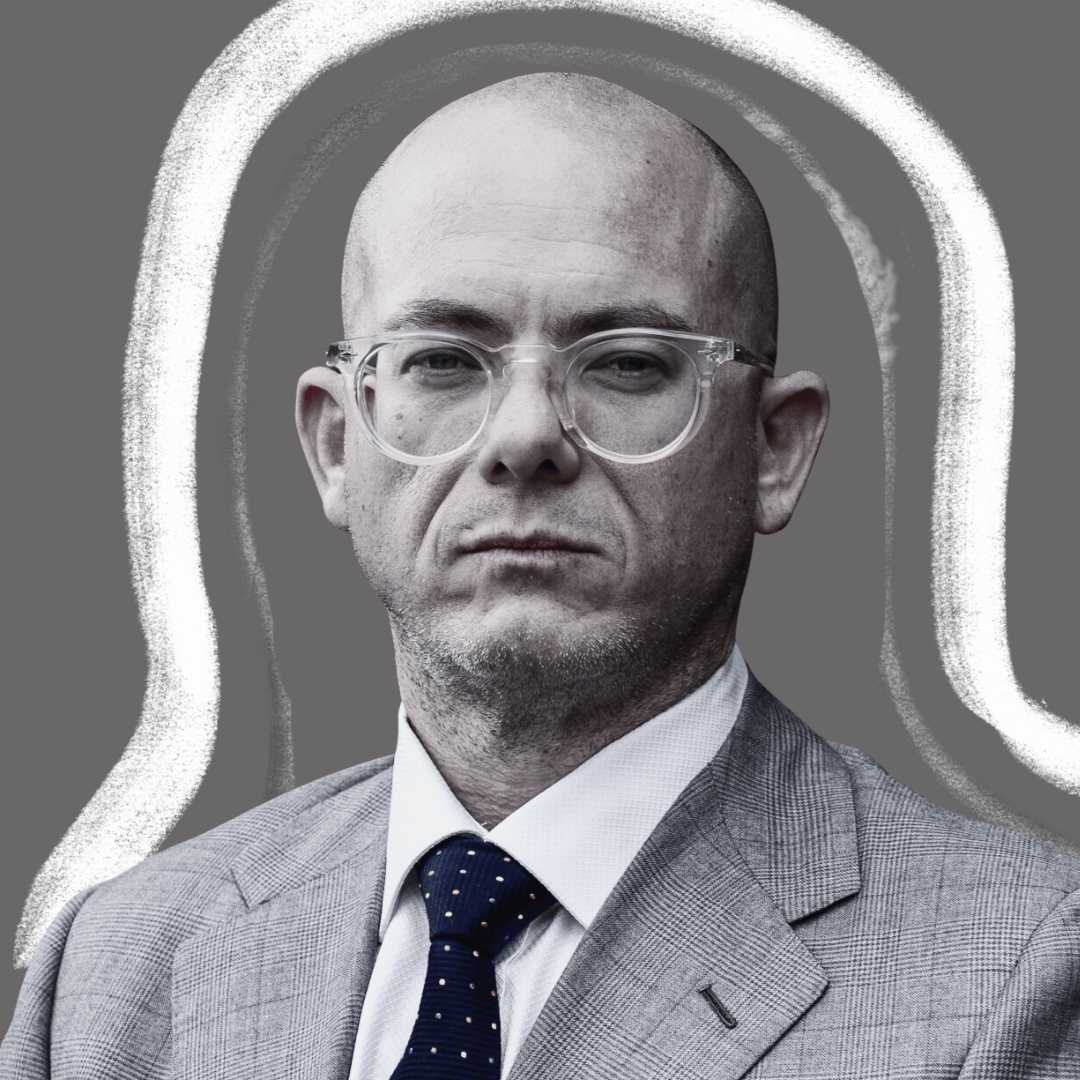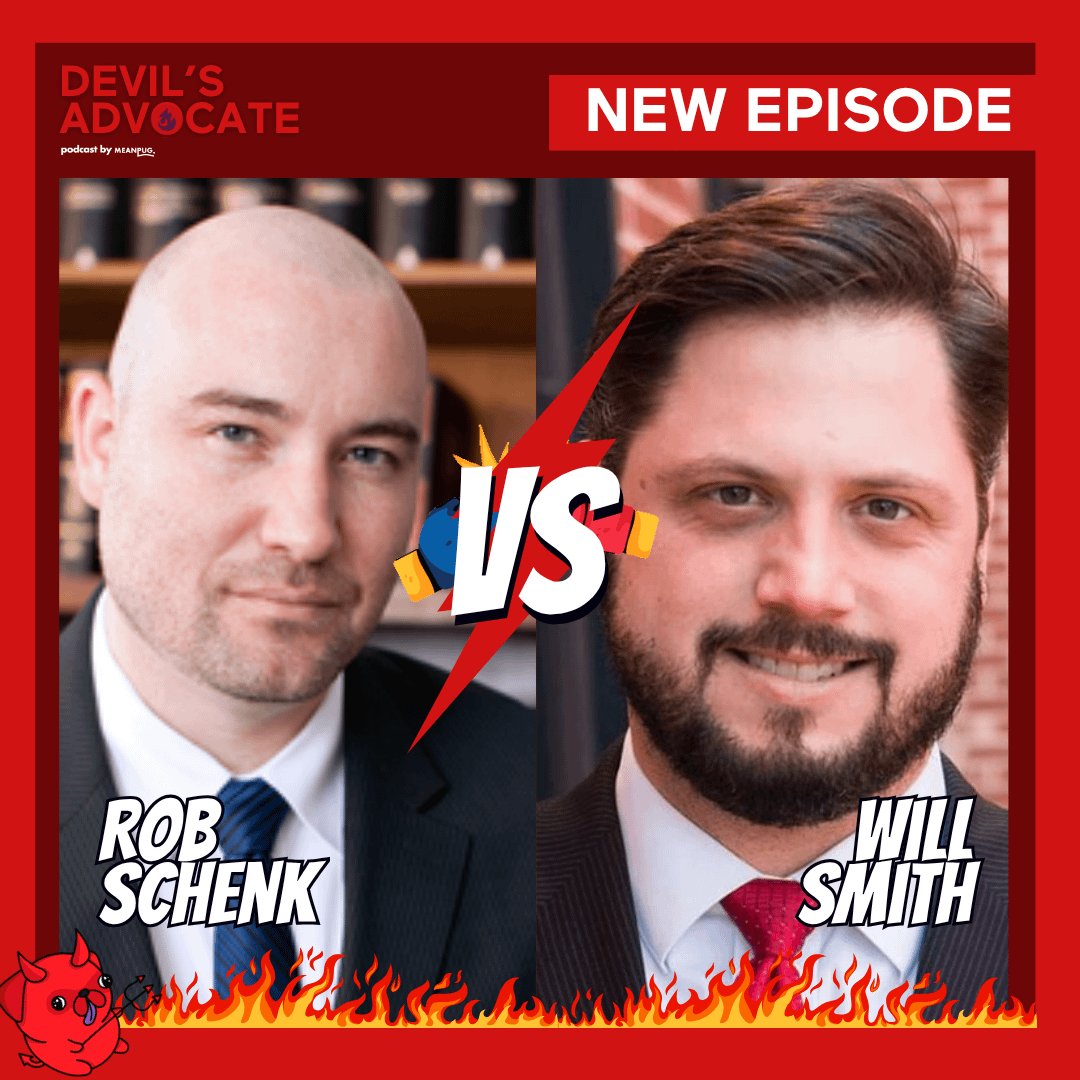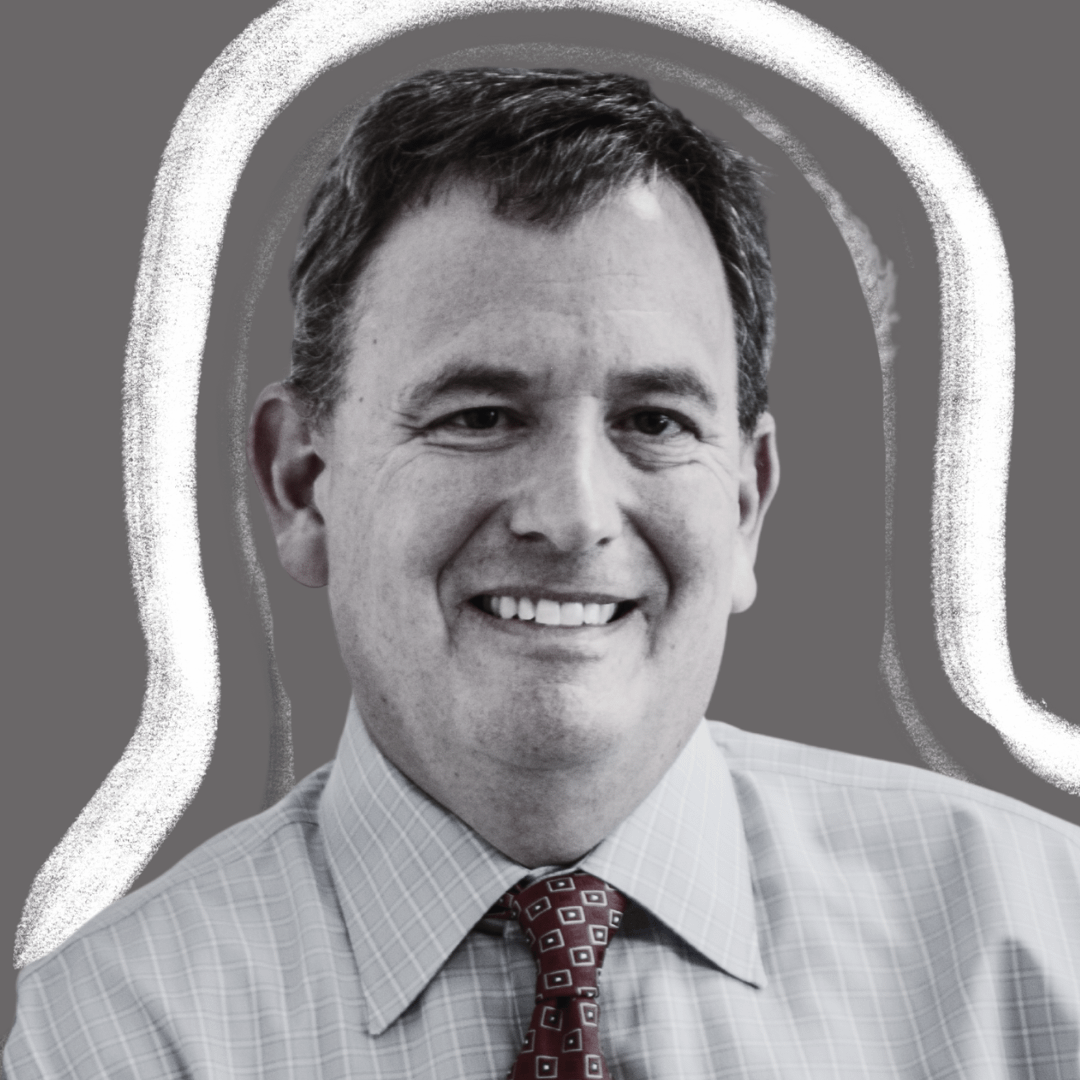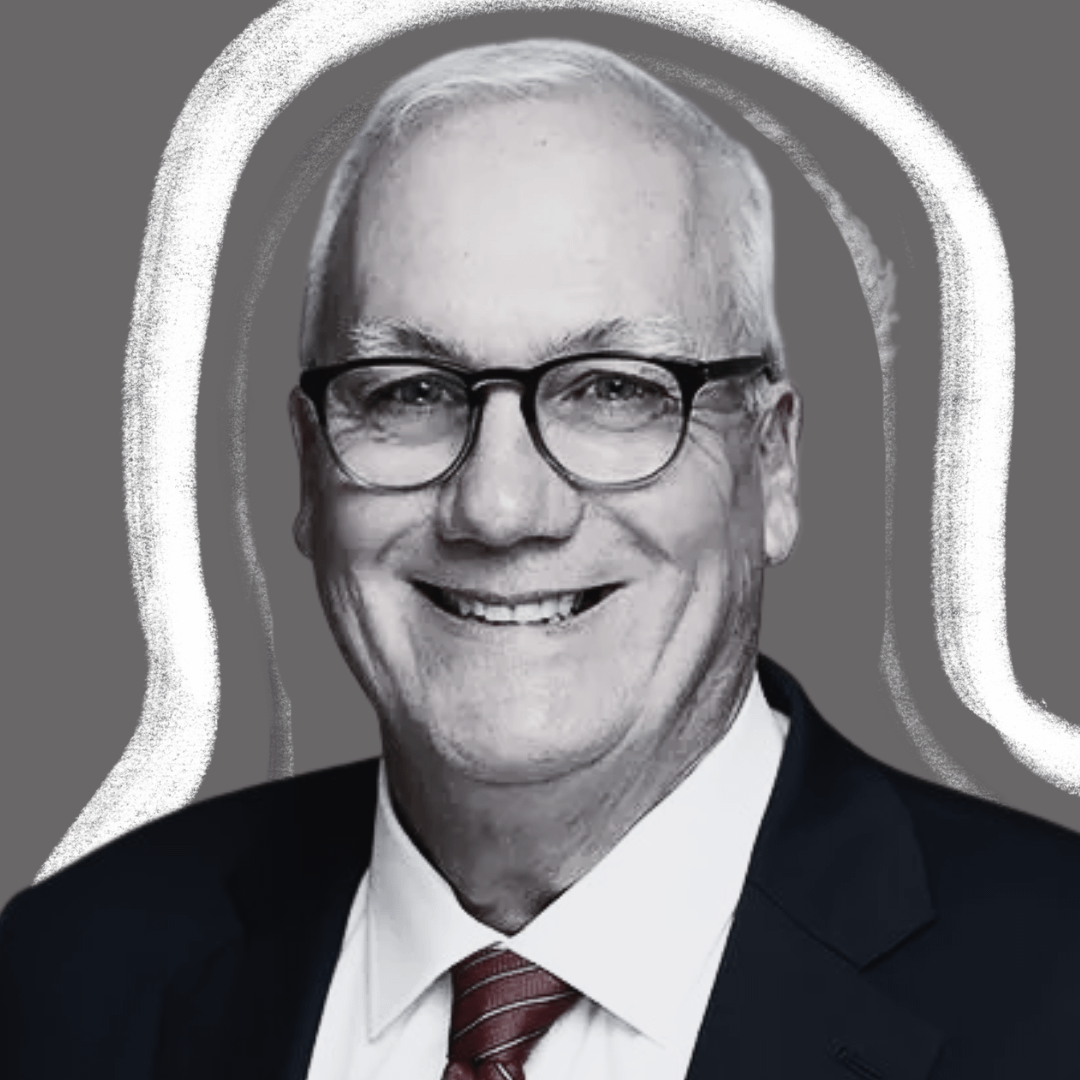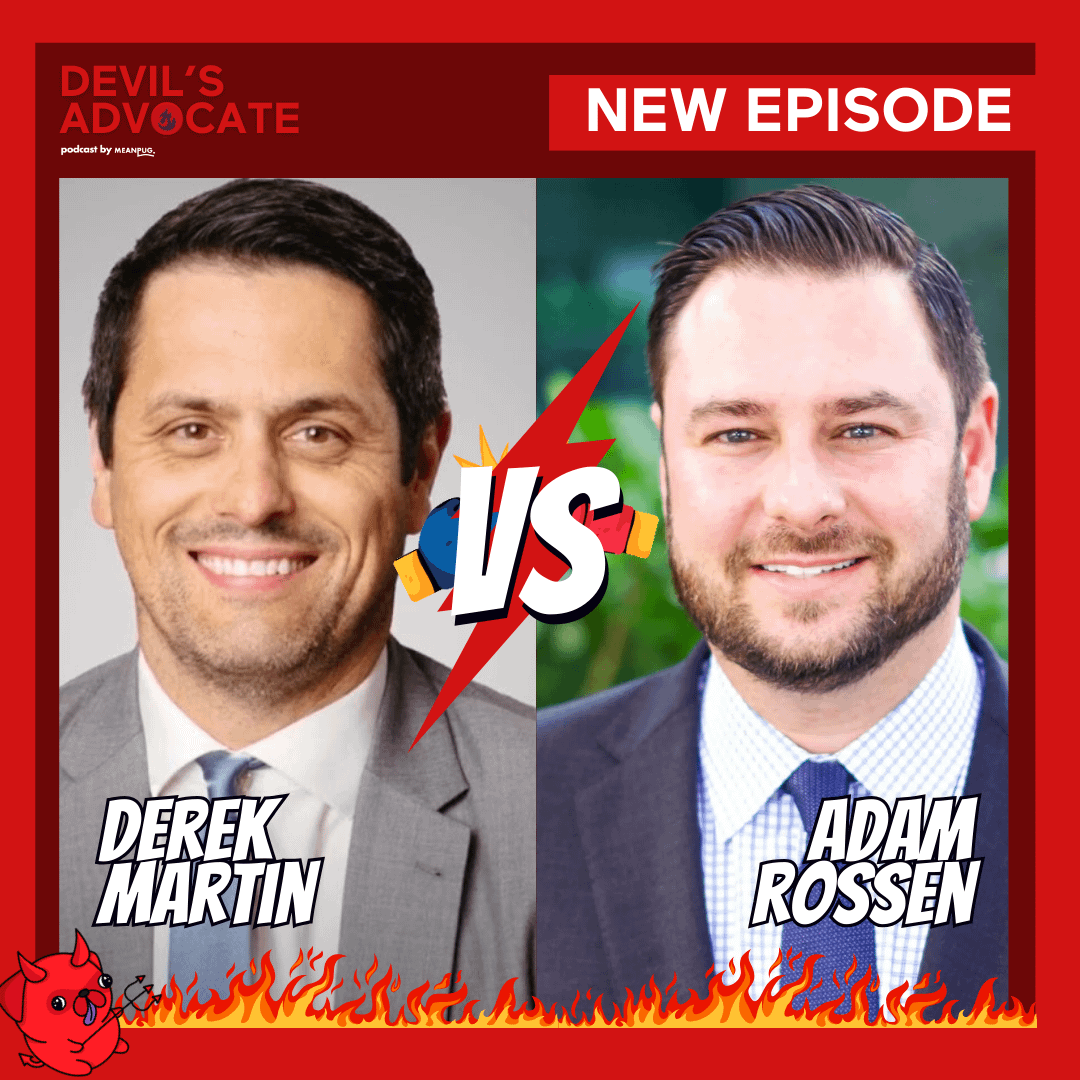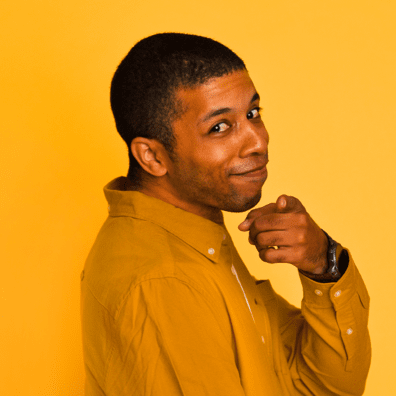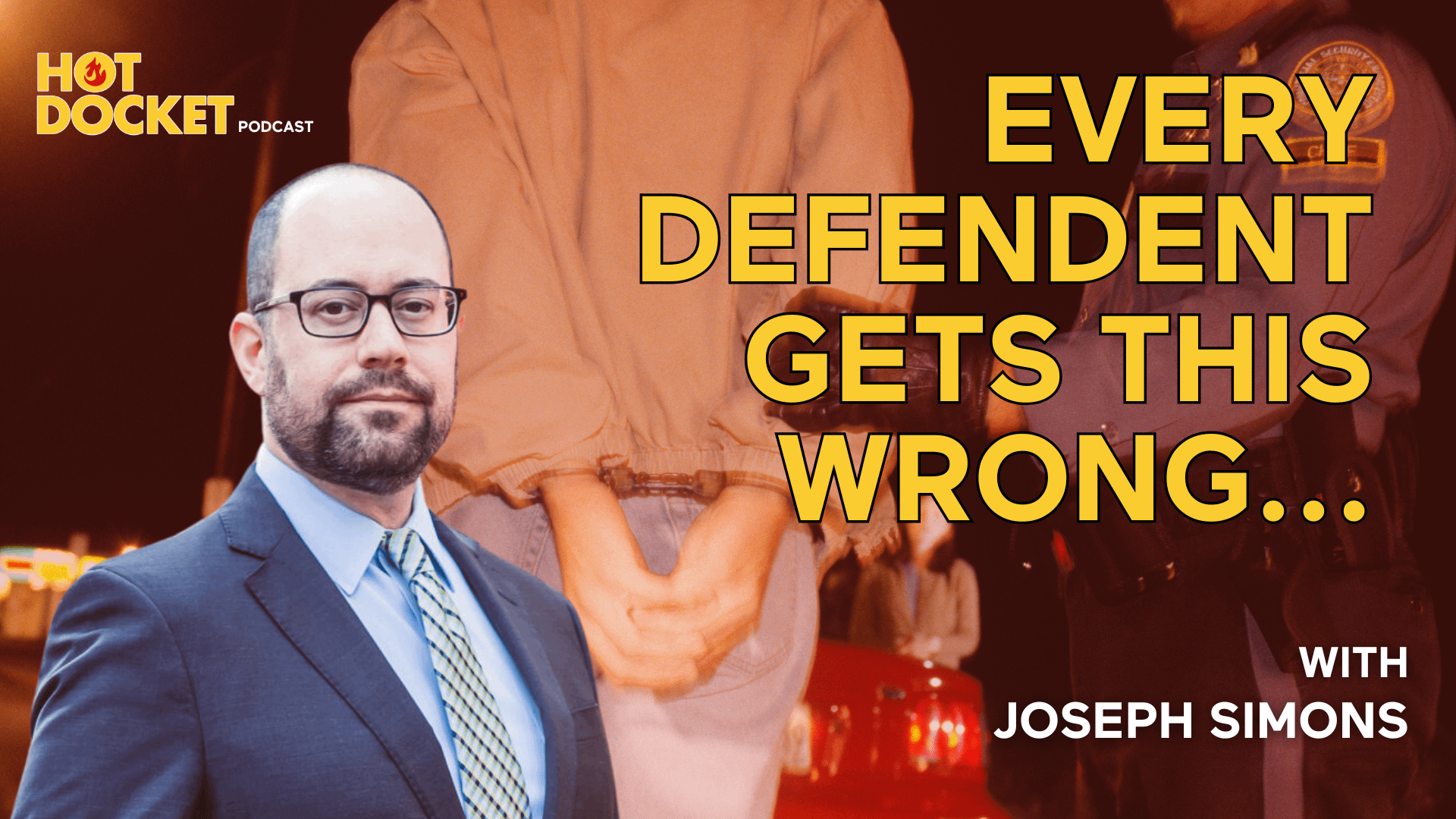
Episode Overview
- Joe Simons’ inspiring journey from musician to top Boston criminal defense attorney
- How public defender overload impacts fair trials and criminal justice outcomes
- Real-world criminal defense insights: defending DUI, drug, and murder cases in Boston
- The biggest mistakes defendants and lawyers make during criminal investigations
- Proven jury selection strategies every criminal defense lawyer should know
Episode Links
Want to hear more from elite lawyers and industry-leading marketers?
Follow us on Social Media for more
Episode Topics
Tune in to learn:
- Why lived experience can be a lawyer’s greatest asset in criminal defense
- The truth about public defenders vs. private counsel (and how it affects outcomes)
- The biggest mistakes defendants and lawyers make during criminal investigations
- How to handle difficult clients (and when to walk away)
- Real-world jury selection tips
- What TV gets completely wrong about trials
Episode Transcript
[00:00:00] Joe Simons:
DA was such a bulldog, like leading up to the second trial, she was telling me that one of the jurors reached out to the DA’s office and told her that it was like. 10 to two in favor of guilty. So, you know, she was telling me, you guys are cooked. You’re like, you almost got a conviction in the last trial.
[00:00:13] Joe Simons:
So much stress. And we went in and we got a not guilty on both cats. So it was like, I mean, it was very difficult. Um, but it was like extra satisfying because I, when the DA’s like, oh, you don’t have a shot. You, you love being the underdog and coming up and coming on top and saying, now what?
[00:00:30] Bobby Steinbach:
Welcome to Hot Docket, the show where we talk about winning marketing strategies that have built the most successful law firms.
[00:00:35] Andrew Nasrinpay:
Join us every two weeks for the latest trends and tactics to grow your law firm.
[00:00:40] Bobby Steinbach:
Hey everybody and welcome to the Hot Docket Podcast. Today we have with us a very special guest, Joe Simons of the Simons Law Office out of Boston. Criminal defense attorney should say that. Very important. Um, Joe, thanks for joining us today.
[00:00:58] Joe Simons:
Yeah, thanks for having me. Good to be here.
[00:01:00] Bobby Steinbach:
Awesome. So I, I think it’s like a good starting point. Anybody who’s in the world of criminal defense, it feels like there’s a very good reason they ended up there. So I’d love for you to just share with us why you ended up in criminal defense.
[00:01:12] Joe Simons:
Alright. I guess we’re jumping right in.
[00:01:14] Joe Simons:
So, uh, I never thought I was gonna be a, a defense lawyer. I didn’t have any lawyers in my family and, uh, when I was 19, I was a high school dropout. I was, you know, just kicking around. I wanted to be a musician, so I was playing in bands and thought that that was gonna be my career. And I got arrested. I, I was one stupid, terrible night.
[00:01:32] Joe Simons:
I drove drunk, I had cocaine on me, and I got into a little crash. My car flipped over. It was crazy. And I, you know, so I got arrested for drunk driving and possession. I think possession with intent, whatever the analogous charge in New York is. I went to jail for a few days and then I went to court. I met a public defender who I had never met before.
[00:01:54] Joe Simons:
He didn’t ask me any questions. He must have read the police report, and he basically started the conversation by saying, ah, we might be able to get you six months in jail for this. Never thought about defending me, never thought about the fact there was another guy in the car. Maybe it could have been his, maybe it wasn’t mine.
[00:02:08] Joe Simons:
Maybe there was some alternate explanation. Somebody else could have used the car. I mean. Anyway, it really turned me, I mean, I was frightened. I was like, oh my God, this guy doesn’t care about me at all. And. Thankfully my parents scraped together money and they hired a private attorney, and then over the course of several months, he was negotiating.
[00:02:27] Joe Simons:
He was telling me to, you know, take classes and, and do things that I didn’t feel I needed, but I did them and it worked out. I ended up getting probation and it struck me one that, you know, public defenders are terrible. I hated them for so long. And also, why are people going to jail for nonviolent drug offenses?
[00:02:44] Joe Simons:
Like I very closely went to. Serve a jail sentence for something that I wasn’t. The OUI, frankly was worse because I crashed. I could have hurt somebody. The drugs, I mean, my God, I, I started reading and researching and understanding the drug laws and how harsh they are and how mandatory minimums exist and things that just to me don’t make sense.
[00:03:03] Joe Simons:
So all of that really led me to become interested in the law and trying to help other people. And so then I became a, you know, I got my GED, went to college, went to law school. All with the purpose of knowing that I wanted to be a defense lawyer so that other people who are in that same position hopefully won’t be facing the same potential fate.
[00:03:21] Andrew Nasrinpay:
I, I think it’s pretty crazy when you look into the amount of cases that a public defender has to handle and you look at the impossible situation where they’re in, where the amount of time they have to dedicate to any individual is so, so limited. But I think that’s something that. Most people don’t understand right off the bat.
[00:03:41] Andrew Nasrinpay:
Uh, could you speak a little bit to that, because I’m sure you’ve, you’ve dug in there a little bit.
[00:03:45] Joe Simons:
I have, yeah. And you’re, you’re absolutely right. I mean, I said I hated public defenders in the past tense. I mean, I’ve met a lot of good people now who are in this work, are in it for good reasons, want to help people.
[00:03:55] Joe Simons:
But even there, the system is set up so that they’re so inundated with cases that if I get a case and I’ve got the ability to, you know, spend, let’s say 15 hours preparing and investigating. That same case, maybe they’ve got three hours and I’m just coming up with numbers off the top of my head. But the reality is they don’t have as much time.
[00:04:13] Joe Simons:
They’re going into court almost every day with a stack of, you know, five to 10 cases I’m going in. I got a single case that I’m dealing with. So I’ve spent a lot more time with my client and that’s where I think, uh, there are a lot of times better results because there’s no real magic here. If you’ve got two lawyers who care the same, a public defender and a private attorney with more time.
[00:04:34] Joe Simons:
It’s just being able to spend more time and getting to know the case better and maybe, uh, issuing more discovery requests or spending more time with an investigator who’s gone out to the scene or stuff like that. It’s really just putting in the time that causes those sort of magic moments in court and those great wins sometimes.
[00:04:51] Bobby Steinbach:
Which kind of like leads me to a question that I. You know, we’ve talked to a lot of plaintiff lawyers. I don’t think we’ve talked to a ton of defense lawyers on this podcast. And one of the things that one of those lawyers said to us really resonated with me. He said, if you have the facts, pound the facts.
[00:05:08] Bobby Steinbach:
If you have the law, pound the law. And if you have neither, pound the table. I want, I wanna know from you, like on the criminal defense side, how often are you pounding the table and how often are you pounding the other two?
[00:05:19] Joe Simons:
Uh, yeah, that’s a good question. I mean, sometimes the facts are bad, like. Sometimes there’s video evidence, sometimes you’re just having to come up with something.
[00:05:27] Joe Simons:
I, I, I don’t know. I feel like I’ve been able to be pretty creative. I mean, every time I go to trial, I hype myself up, even if I know it’s a, a case that we’re very unlikely to win. I know my client’s counting on me. I know they’ve made the decision to go to trial because we’ve already discussed the ins and outs, the pros and cons.
[00:05:42] Joe Simons:
I’ve given them my advice and if they still wanna go to trial on a case that seems unwinnable. I don’t know. I, I, I would say I’m more often pounding the facts in, in my personal experience. And the facts may be the facts that were positing as true, or just the facts of like, here’s a hole in the case, here’s something the investigation from the police didn’t uncover.
[00:06:01] Joe Simons:
Here’s, here’s some witness that didn’t get interviewed. Here’s, you know, ’cause I’m a lot of times trying to come up with an alternate possibility rather than actually saying, this is what happened or this didn’t happen. Can,
[00:06:12] Andrew Nasrinpay:
can you walk us through really quick what types of cases your firm handles?
[00:06:18] Joe Simons:
I’ve done everything from drunk driving to murder trials and everything in between.
[00:06:24] Joe Simons:
Um, you know, on a given day. It just, it’s such a wide variety. If somebody were to ask me what, like a typical case is, it’s a criminal case, but it could be a white collar, you know, mortgage fraud case in federal court. It could be an assault and battery or a home invasion case in state court. And, uh, I, I, I kind of like the variety because you meet a lot of different people, a lot of interesting people, and, um, so yeah, pretty much any and every criminal type of case you could imagine.
[00:06:52] Bobby Steinbach:
Can, can you walk me through a time, if ever, that you’ve had to walk away from a case?
[00:06:58] Joe Simons:
Yeah, so I, I have sort of two answers to that. Inquiry. So one is I try not to take cases if I feel like I can’t give it a hundred percent. Like if I know off the bat that something about the allegations or the client just doesn’t sit right with me, or I feel like for whatever reason I can’t help them, I’ll decline the case If I’ve taken a case, I have had to withdraw.
[00:07:18] Joe Simons:
Thankfully, not too much, but it’s only been because of having a client that. I feel is difficult, like somebody I just can’t work with, and I feel like I can work with a lot of people. I don’t judge. I don’t if somebody’s guilty, that usually doesn’t bother me. I mean, I’ve had very difficult cases, murders, sexual assaults, things are, you know, things that most people would find abhorrent, myself included.
[00:07:40] Joe Simons:
But, but I can put that aside. Like I, I feel like I’m advocating for my client. I’m upholding their rights. I’m arguing for them. I’m making sure that justice is done and trying to win their cases as I should. But it’s usually, if it’s a difficult client or somebody that just. Won’t take my advice or won’t even listen, or, you know, calls all the time and, and tells me, oh yeah, chat.
[00:08:00] Joe Simons:
GBT told me this. I’m fine with that. If we can then reason and I can explain, hey, maybe that’s not correct and here’s why. But some people just, you know, it seems like why hire a lawyer because certain people just don’t wanna listen. And, and if that relationship breaks apart, it’s usually more of a personality thing than a case related allegation.
[00:08:22] Bobby Steinbach:
On that concept of chat, GPTI, I was going through like a, I’m curious what your take on this is. I was going through like a pretty difficult situation and I found myself like talking with chat GPT about it and it was medical, so we were going back and forth and I was getting answers and all this other stuff, but I found myself reticent to go to the doctors and be like, well, chat, EBT told me like, uh, yada, yada yada.
[00:08:47] Bobby Steinbach:
So does that make sense? Um, but. When I did ask them certain things that had told me, they were like, yeah, a hundred percent. That’s right. So like, are you, how do you fall on that line of like, it’s annoying versus, this is actually really interesting and maybe even brought up a point that I wasn’t thinking of.
[00:09:07] Joe Simons:
I think for the most part I’m open to it and I think that it can actually uncover insights and I’m, I’m always open to it. I, it’s, when I referenced it, like it’s not necessarily a chat GBT thing. It could be a, you know, if somebody’s held in jail, it could be like another person who’s been through a different case and telling them, they call ’em like a jailhouse lawyer.
[00:09:25] Joe Simons:
Like they’re getting their advice from a jailhouse lawyer instead of their lawyer that they’re paying. Um, so it’s not a chat GBT thing that I, that I don’t like, but I, I do, I think that sometimes clients look something up and they’ll tell me they looked it up. Sometimes it’s right, sometimes it’s not.
[00:09:39] Joe Simons:
Sometimes it’s in the middle. Sometimes I’ll say, you know what, that’s an interesting point. Let me look into it and get back to you. I don’t hate it. I mean, I do like to have a client who is active in their own case. You know, I, I think that there’s a level of like, I don’t want complete. Passive client, I want somebody, ’cause they’re making decisions too.
[00:09:56] Joe Simons:
I’ll come to them and I’ll say, Hey, here’s a few different paths we could take. We could request this video, but if we do, the prosecution’s gonna know about it because we gotta put in a, a motion in court. Do we want that video, do we not? So I’m, a lot of times I’m relying on their insight. They were there.
[00:10:11] Joe Simons:
Maybe they might be able to tell me, is this gonna be helpful or do we wanna leave this alone? Or, there’s a lot of examples like that. So, um, yeah, I don’t hate Jet GBT.
[00:10:20] Bobby Steinbach:
I totally relate to that feeling of not wanting a client who’s just so passive and pointing to you like you’re the expert. You tell me.
[00:10:29] Bobby Steinbach:
It’s the same way in our work in branding, like, yeah, we, we can understand the technical ramifications of choice A or B or color X or Y, but it’s your brand. Like we want you to feel invested in the end work product, right? So. We’ll give you options, but maybe you should pick which one resonates with you.
[00:10:48] Bobby Steinbach:
So I think it’s probably pretty similar in how you view, uh, defense.
[00:10:53] Joe Simons:
Yeah, I imagine so. And, and for the doctor thing, did you ever bring that up to the doctor? Like, did you ever tell the doctor what the chat CPT was suggesting?
[00:11:00] Bobby Steinbach:
Yeah. And like, uh, I, you know, it’s a little bit different because that’s not, like, it’s not, it’s not saying like, oh, you, it’s not giving you like a cure or like an advice for, it’s just telling you kinda like, overview, here’s what’s happening, here’s where you’re at, yada, yada, yada.
[00:11:16] Bobby Steinbach:
So for them, it’s not like a situation where they’re gonna have to be like, well, that, that’s wrong because it, it’s not really like a wrong or right thing, so much as just like a factual. Here’s where you’re at. So, um,
[00:11:29] Joe Simons:
well, and, and just too, I mean, I, I’ve been to the doctor before where the doctor’s like, oh, let me look something up.
[00:11:35] Joe Simons:
And then they Google something. So, I mean, doctors are human too. They’re Googling stuff too. I mean, you hope not as, as much as you are because they know a little bit more, but. I mean, you know, that’s the thing too about lawyers just on a, not to go on a tangent, but I think that people don’t always understand that lawyers don’t have all the knowledge in their head.
[00:11:51] Joe Simons:
I mean, somebody might ask me like, well, what’s the maximum sentence for this crime? And I mean, there’s thousands of crimes. I don’t know off the top of my head. There might be some, I’m like, yeah, okay, it’s assault and battery two and a half years or, but yeah, I mean, we’re looking stuff up all the time. So if a client asks me a quick.
[00:12:05] Joe Simons:
Quick question on email. It could take me like a half an hour to do, do some research just to get back. Um, so I think it’s, it’s valuable to have, you know, resources online to, to be able to turn to
[00:12:17] Andrew Nasrinpay:
completely turning the direction of the call a little bit. Um, your life prior to becoming a lawyer seems pretty interesting.
[00:12:24] Andrew Nasrinpay:
Can you tell us about some of the bands you were in and, uh, what was going on?
[00:12:29] Joe Simons:
Yeah, so I, I mostly played, you know, with, with people in high school and a little bit beyond, and, uh. We, we were, I’m from a small town ing out to New York, and, uh, we didn’t really get big, but we, you know, sometimes go to Albany, which is the next biggest city, or Binghamton or some of the other, you know, college towns around.
[00:12:46] Joe Simons:
So, uh, one band I was in called The Fine Line, um, probably the, my favorite band, and it was a group of three other guys and we played a lot of rock music. We played some covers, but a lot of originals, I would say in the line of like, um, you know, foo Fighters, Nirvana, Jimmy World, um, you know, just good old rock and roll stuff.
[00:13:05] Joe Simons:
And I really enjoyed it and I, I, that was my passion for the longest time. Um, and you know, at some point I realized, I think around the same time I was getting. Into, I wasn’t really into cocaine, but I, obviously, I tried it and, uh, you know, I realized, look, the chances of me getting famous or getting well-known enough to make this a living are unlikely.
[00:13:26] Joe Simons:
So I was also working at Applebee’s as a prep cook, a job that I hated, and I was like, why don’t I just, you know, right. Kind of a perfect storm of like, I can’t do this forever. Um, I was selling weed. I was actually pretty good at it. I really enjoyed. Uh, selling media was my favorite job. Uh, I did pretty well.
[00:13:44] Joe Simons:
I mean, for a kid, you know, there’s a point where I was buying like three pounds at a time and I was, you know, start like starting from just buying a, a, a eighth, a quarter, and then, you know, breaking dime bags and 20 bags and then building it up. So I felt like I called myself an entrepreneur before everybody called themselves entrepreneurs about 20 years ago.
[00:14:01] Bobby Steinbach:
And, uh, oh, what’s the SOL on this? This is,
[00:14:07] Joe Simons:
well, it, it’s funny now this, I feel like we’re going off on a tangent. This is totally not what I was planning to talk about, but it was a fun time and I really enjoyed it.
[00:14:17] Bobby Steinbach:
All right. Getting back on point, perhaps, what’s the weirdest case you’ve ever had?
[00:14:23] Joe Simons:
Weirdest case.
[00:14:24] Joe Simons:
Um, I mean, they’re all weird in their own ways. You get to know people, you get to know situations. I’m just trying to think. Um. I don’t know. I, if something sparks my head, I’ll, I’ll get back to you on that. There’s all right. Then
[00:14:39] Bobby Steinbach:
let’s do a different one. What’s the hardest case you’ve ever had?
[00:14:43] Joe Simons:
The hardest case I ever had was, um, well, alright, it’s not a great topic, but it was this client who was charged with rape of a child and it’s bad, but it’s not as bad as what you’re probably picturing.
[00:14:56] Joe Simons:
Um, it was a 28-year-old guy who was a dance instructor and he was, uh, accused of having sex with a 14-year-old. It would’ve been consensual, but for the age. And there’s a 10 year mandatory minimum sentence for that charge if you’re convicted and you can get up to life. So it’s a pretty significant charge.
[00:15:14] Joe Simons:
And we, first of all, the guy had talked to the police. He did a 45 minute interview with the police. He didn’t come across well. He contradicted himself, hit himself at times. He admitted, for example, that he dropped the grow off. A block away from her home, obviously not a good fact. Why are you dropping her off a block away from her home?
[00:15:32] Joe Simons:
Um, so there was, there was an interview that came in at trial that was not great. He testified at trial, didn’t come across that great. He was okay, but not the greatest. We had a mistrial. The first trial, the jury was hung. They couldn’t reach an agreement. So then we had a second trial. And at the second trial, not only the first interview with the police came in, but also the.
[00:15:55] Joe Simons:
First testimony came in. So they had a prosecutor that wasn’t part of the case, play the part of my client and sit on the witness stand. And then they went through the transcript. So the jury heard the statement from to the police, the statement, his testimony under oath, you know, reenacted. And then he testified at the thir at the second trial.
[00:16:14] Joe Simons:
So they heard three different statements. And to be honest, I was kind of cringing because I didn’t think he came across all that great. And there was little contradictions and. The DA was such a bulldog, like she was, you know, she was so aggressive. So like leading up to the second trial, she was telling me that one of the jurors reached out to the DA’s office and told her that it was like 10 to two in favor of guilty.
[00:16:36] Joe Simons:
So, you know, she was telling me, you guys are cooked like you almost got a conviction. The last trial. Like so much stress. And we went in and we got a not guilty on both counts. So it was like, I mean, it was very difficult. Um, but it was, it was like extra satisfying because uh, it was kind of like, you know, when the DA’s like, oh, you don’t have a shot.
[00:16:55] Joe Simons:
You, you love being the underdog and coming up and coming on top and saying, now what?
[00:17:01] Bobby Steinbach:
Epic. Yeah. I love that. What do you think the number one mistake most defense attorneys make is? And like, how do you avoid it? Um.
[00:17:13] Joe Simons:
I think one thing is trying to either over promise or trying to answer questions right away that you don’t know.
[00:17:19] Joe Simons:
As I’ve gotten more experience, I’m more comfortable telling people I don’t know the answer, but I think, and I, I feel like I’ve, I’ve tried to do that all along. I’ve had some good mentors, uh, starting out, but I’ve seen other lawyers or heard about other lawyers from clients that maybe. Change from a prior lawyer to me is, you know, lawyers tell ’em information or, or trying to sell ’em on something that, oh, you got, you got this, uh, motion to dismiss.
[00:17:43] Joe Simons:
We’re gonna win. Or answering questions not thoroughly enough because the lawyer wants to be perceived as like, oh, I know the answer, I know all the answers. I’m gonna give you the answer. But like I said earlier, um. I’m okay if I gotta spend half an hour and go do some legal research and, and figure out what the answer is before I answer it.
[00:18:01] Joe Simons:
So I think just being humble enough or to a court, if a judge asks you a question and you don’t truly know the answer, I think it’s okay to say, look, judge, I’m happy to research it. If you gimme a week, I’ll, I’ll come back with a, with an answer or with a brief addressing that question. And, uh, I think that’s helpful.
[00:18:20] Andrew Nasrinpay:
What are some of the biggest mistakes you’ve seen clients make?
[00:18:24] Joe Simons:
Talking to the police. That is the number one. I, I, I mean, I say it in my, you know, any video about what to do after a a, a charge before a charge, rather. I mean, you just don’t talk to the police. I’ve seen so many cases that would have been winnable, but for that link in the chain.
[00:18:43] Joe Simons:
And it’s not even outright admission. Sometimes it is. I mean, sometimes I’m shocked the client just like admits to everything, but sometimes it’s one little thing that they, you know, they think they’re outsmarting the police, they think they’ve come up with some story, and yet there’s just one little thing.
[00:18:57] Joe Simons:
Like maybe they admitted that they knew the alleged victim and that could be enough because the police didn’t have a connection that was solid between the two, or that they were in a certain town. So that’s the biggest one. Talking to the police is just the absolute worst. But the other one that would be, I’m surprised at every time it happens, talking on the phone from jail, if somebody’s held in jail, either on a very high bail or without bail, which happens from time to time.
[00:19:22] Joe Simons:
Every time you pick up the phone other than to a lawyer, you pick it up. They say, this call’s being monitored and recorded. It may be furnished to state and federal prosecutors, yada, yada, yada. And then somehow they proceed to talk about the case. And they sometimes make admissions. They sometimes try to pressure a witness not to testify, which is witness intimidation, a whole nother felony.
[00:19:42] Joe Simons:
Oof. I, I guess you could sum it up to just talking. If you are being investigated or being charged with a crime, the only person you should be talking to is your lawyer. Period. End of story.
[00:19:54] Bobby Steinbach:
Yep. People pulling the jinx. What is it? They know you did it. They got you. Right. I think.
[00:20:01] Joe Simons:
Right. That’s, that’s a great one.
[00:20:04] Bobby Steinbach:
You must have like crawled outta your skin watching that. Are there any other like, uh, popular culture type of scenes that you could think of where you were just like dying because of your, uh, background?
[00:20:19] Joe Simons:
I don’t know about anything that compares to that off the top of my head, but my mom likes to watch Law and Order and so whenever I’m visiting her and watching it, um.
[00:20:28] Joe Simons:
It, it kind of drives me crazy because first of all, they go from investigation to trial like a week later. And second of all, when there’s a lawyer asking a wish witness questions, they’ll go from questioning the witness to like looking at the jury and making an argument and then going back to questioning the jury, which is obviously not how it works in real life.
[00:20:46] Joe Simons:
So it drives me a little bit crazy in that sense. But, uh, I guess it’s all in good fun. And I mean, trials are, they can be boring. Like I, uh. Just as an aside, I had a trial yesterday. It was a one day, uh, intimidation of a witness in violation of a restraining order. I brought my 13-year-old son. It was the first time he had come to court to watch a trial, and he liked it, but he also said it was kind of boring because there’s parts that are just mundane.
[00:21:10] Joe Simons:
You know, you’re picking the jury, you’re, you’re just waiting, you’re listening to the judge. Give instructions for 20 minutes that are just. Droning on about the law so I can understand why. Shows, uh, they, they wanna pick it up a little bit and keep things exciting for the audience.
[00:21:26] Andrew Nasrinpay:
Do you have any go-to jury selection, like, uh, tips?
[00:21:33] Joe Simons:
Keep an open mind. I think that there are colleagues that I have that they’ll say, oh, you know, this person is married to a cop or is friends with a cop. Get ’em off the list. You know, we’re defense lawyers. We don’t want cops on there. Um. I kind of take a different view. That’s just, this is one example, but, um, even actually yesterday, there was a guy in the jury for this case that I had yesterday.
[00:21:56] Joe Simons:
He was best friends with a police officer. He told us at jury selection that he was his best man at that guy’s wedding. This, this cop’s wedding. I liked him, the client was okay with it, and we got a not guilty verdict on both counts. But the reason that I actually kind of like sometimes cop friends or cop family members is because.
[00:22:15] Joe Simons:
Unlike people who don’t know cops, and they might put ’em up on a pedestal if you like the police and you’re like, oh my God, the police never lie. If you know cops, you know they’re human and you know that they’re full of crap just like everybody else is full of crap. So I, that’s just one example. But there’s a lot of examples of preconceived notions.
[00:22:32] Joe Simons:
You might think that somebody’s gonna have di certain views just because of what they do for work or certain background. But in my experience, it’s really important to like really listen to them and look at their body language, listen to what they’re saying before you make a judgment. And I found that that’s worked out pretty well.
[00:22:49] Joe Simons:
So keeping an open mind for me
[00:22:51] Andrew Nasrinpay:
is what are the biggest red flags for you though when you are selecting. Like what would take, what would make you immediately say like, oh, I can’t select that person?
[00:23:00] Joe Simons:
Sometimes it’s just subtle things. Like if my client is up at the side of the bench when we’re doing like the individual voir dire, we can ask jurors questions one by one typically, and a lot of times I like my client up there, one, because I want them to be part of the process and help me, you know, I’ll give them advice and make sure they’re comfortable.
[00:23:18] Joe Simons:
But two, I’m always interested if a person goes up and they’re smiling at the prosecutor and saying, hi. Not looking at my client or me Sometimes I’m like, okay, this person’s problem. No matter what they say, they’re either uncomfortable to the point where they can’t even address another human being because they’re charged with a crime.
[00:23:37] Joe Simons:
So to me that that’s usually a big one that like
[00:23:40] Bobby Steinbach:
this person’s, that’s great advice. I think that makes a lot of sense. It’s a lot, a lot more about like the nonverbal views than it is about the verbal ones. And that’s pretty universal, I feel. Yeah. Um, okay. Joe, before we adjourn. Can you tell us a little bit about your TikTok channel and not Guilty, which is an epic handle and um, the type of content you usually put up there.
[00:24:00] Joe Simons:
Yeah. Thank you. So, um, in my free time I like to post on TikTok and it’s been pretty good. I mean, I have a pretty decent range of videos from things that are serious, like sometimes an update in the law to some, sometimes there’s a silly sketch. I come up with something like, based on a real scenario, and I did a bunch of filming last week that I’ll be posting some videos about, but different scenarios of.
[00:24:23] Joe Simons:
Of things and uh, sometimes it’s just to crack myself up and sometimes things pop off. But, uh, yeah, check me out on not guilty for some, some legal news, some funny bits. And, uh, you know, just some day in the lifes of a criminal lawyer.
[00:24:38] Bobby Steinbach:
Amazing. Well, we’re, we’re definitely gonna check it out. Um, thanks again for joining us, Joe.
[00:24:42] Bobby Steinbach:
I think this was a really insightful, interesting conversation. Um, catch us on the next Hot docket. We hope you’ve enjoyed this episode of Hot Docket. We’re your hosts, Bobby and Andrew, founders of Mean Pug, the marketing agency for ambitious law firms.
[00:24:56] Andrew Nasrinpay:
Have questions about marketing or anything we covered today?
[00:24:59] Andrew Nasrinpay:
Email us at bark@meanpug.com. Be sure to subscribe to learn more. Until next time.





